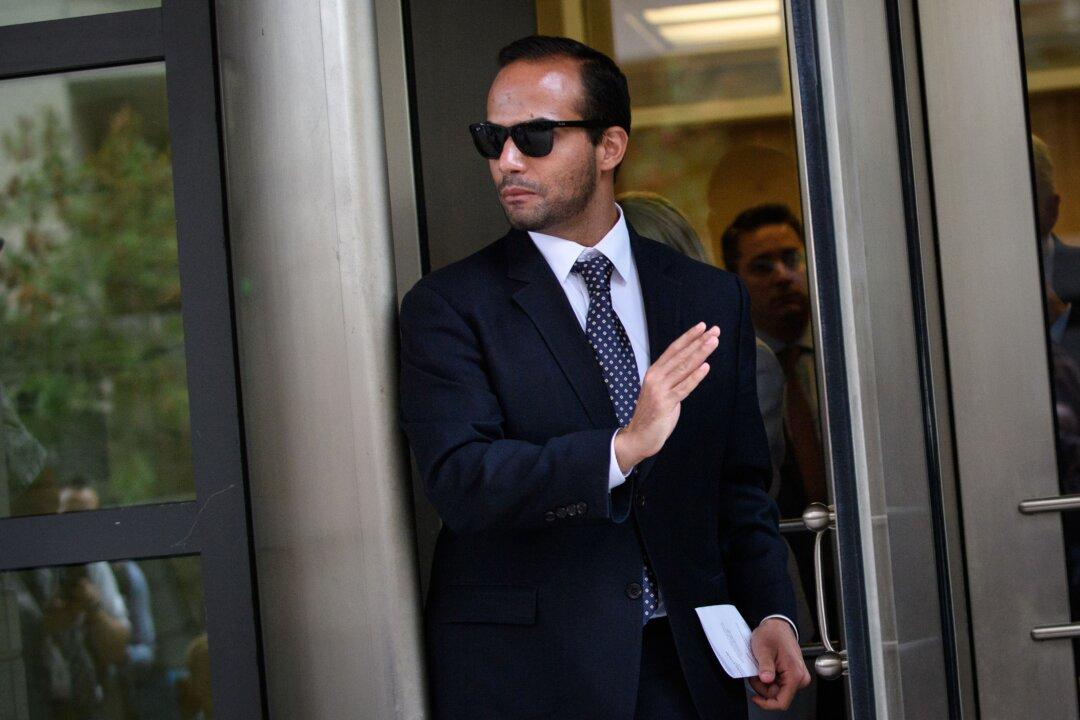Republican lawmakers who questioned former Trump-campaign associate George Papadopoulos on Oct. 25, cast more suspicion on the premise of the FBI’s investigation of the Trump campaign in 2016.
“My questioning with Papadopoulos confirmed that he was a 28-year-old policy adviser who'd been on the job a month at the time the Trump-Russia investigation was launched, and to this day he’s never been to Russia nor met anyone associated with the Russian government,” Rep. John Ratcliffe (R-Texas) said on Twitter.





